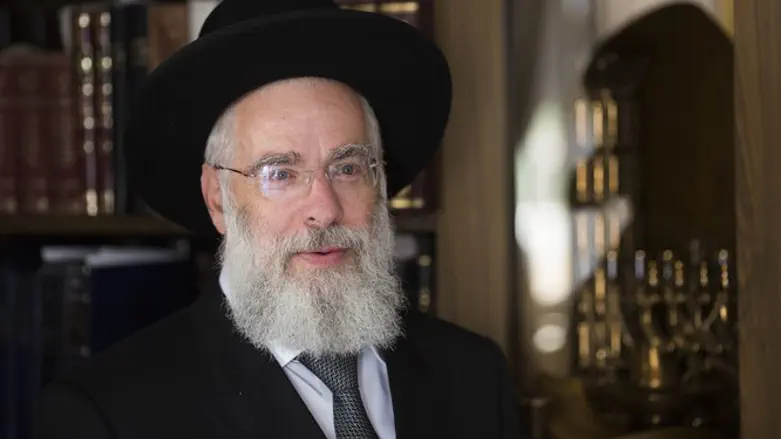
In this week’s parasha, the nation is cautioned: “Take care lest you forget the Lord your God…lest you eat and be satisfied…and your heart grow haughty and you forget the Lord your God…who led you through the wilderness… who fed you manna… and you say in your heart, my own power and the might of my own hand have made me all this wealth. Remember that it is the Lord your God who gives you the power to make wealth."
From the sequence of the pesukim, it seems that the danger of attributing wealth and success to “my own power and the might of my own hand”, threatened the nation only after they arrived in the land of Israel, “a land where you will eat bread without poverty, where you will lack nothing, a land whose rocks are iron and from whose hills you can mine copper."
Am Yisrael’s existence in the wilderness was supernatural; it was characterized by Hashem’s ongoing intervention and constant miracles. In many ways, this way of life was more ‘spiritual’ than the life that awaited them in the land of Israel.
This begs the question: Why did the miracles need to stop? Why couldn’t they continue to live supernaturally even after they entered the land? After all, life in Israel is marked by greater Divine providence than life in the Diaspora, as Ramban mentions on many occasions. It would seem that supernatural miracles could easily be a part of this unique providential ambience.
As a corollary to this question, it is interesting to consider why Moshe promised the nation that they would go to “a land flowing with milk and honey”. while they were still in Egypt. Wasn’t it enough to know that they were headed to the land of Israel? Why did Moshe need to emphasize that they were going to the land of milk and honey?
Rav Kook explains in Ein Aya that Moshe highlighted the physical attributes of the land to teach the nation that these great physical pleasures would not diminish their spirituality, and that because of the land’s intrinsic holiness. Man is most vulnerable to the dangers posed by physical pleasure when he is spiritually weak. Therefore, Moshe told them that the land of Israel is an extremely holy place, and it is also a land of milk and honey – it integrates spirituality and physicality with normalcy.
On the flip side though, when the nation experiences physical success in the land, there is a risk that the people will become haughty and attribute it to their own might.
The Ran writes that the Torah does not intend to nullify the role that man plays in generating wealth and success. It rather seeks to reinforce that Hashem is the source of that strength. He “gives you the power to make wealth”. This message is echoed by a different pasuk that uses similar language – “Not by might, nor by power, but by My spirit—said the Lord” . Man’s might and power are worthless on their own; they must coincide with the understanding that everything that we have comes from Hashem’s Divine spirit, and that is what generates our might and power.
The generation that lived in the wilderness needed to live supernaturally. They had not yet experienced the spiritual greatness which would have allowed them to live differently. They did not have the spiritual tools to overcome the danger posed by “my own power and the might of my own hand”.
The nation that lived in the land of Israel though, possessed the spiritual sensitivity unique to the land, and were equipped to surpass this challenge. Therefore, they lived a natural, rather than supernatural, life. Their greatness of spirit enabled them to understand the true origin of their strength.
Rabbi Yaakov Shapira is the Rosh Yeshiva of Yeshivat Mercaz HaRav in Jerusalem